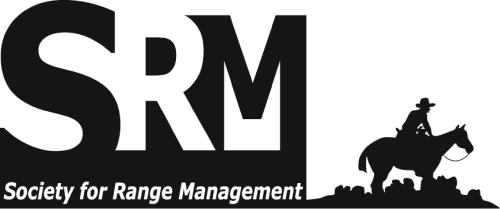The shrub honey mesquite (Prosopis glandulosa var. glandulosa Torr.) readily encroaches into rangelands in the southwestern United States that vary in annual rainfall by almost a factor of 5 (200 to 1 000 mm). This occurs partly because mesquite seedlings grow rapidly and become uncoupled from competition with established herbaceous vegetation. Species that occupy such a wide precipitation gradient frequently include plants that differ genetically in seedling growth rate. Whether atmospheric carbon dioxide (CO2) enrichment affects seedling biomass uniformly across mesquite genotypes or magnifies the expression of genetic variation in seedling growth remains unresolved. We measured the effects of CO2 enrichment on growth of seedlings derived from 14 adult plants (open-pollinated families), 7 plants each from rangelands located near extremes of the rainfall gradient occupied by the shrub (arid southeastern New Mexico vs. mesic central Texas). Growth was measured over days 10 to 30 following emergence on well-watered seedlings in glasshouses at ambient and elevated CO2 concentrations (391 and 706 lmol mol-1, respectively). Proportional responses of biomass (day 30) to CO2 enrichment varied from 1.03 to 1.74 among families. CO2 enrichment did not consistently favor the largest or fastest-growing families at ambient CO2. Rather, proportional responses of biomass to elevated CO2 were highly correlated across families with the stimulation of relative growth rate (RGR) at elevated CO2. Biomass at ambient CO2 was 19% greater, on average, in families from mesic rangeland than from arid rangeland, but families from extremes of the precipitation gradient did not diverge by seedling size or response to CO2. Selection for greater RGR could augment the mean growth response of mesquite seedlings to CO2. Even in the absence of selection, CO2 enrichment could increase mesquite establishment by enhancing seedling growth and thereby exacerbate the management challenge of minimizing woody encroachment. The Rangeland Ecology & Management archives are made available by the Society for Range Management and the University of Arizona Libraries. Contact lbry-journals@email.arizona.edu for further information. Migrated from OJS platform August 2020 Legacy DOIs that must be preserved: 10.2458/azu_jrm_v59i2_polley

Scholarly peer-reviewed articles published by the Society for Range Management. Access articles on a rolling-window basis from vol. 1, 1948 up to 5 years from the current year. Formerly Journal of Range Management (JRM). More recent content is available by subscription from SRM.